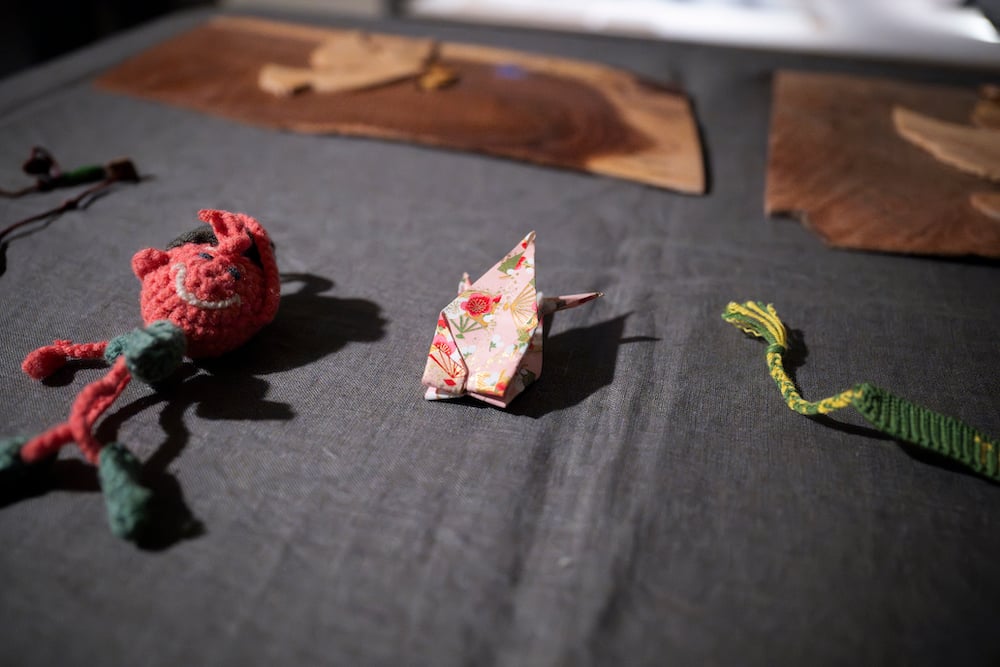This year’s Nobel Peace Prize was awarded to human rights activist Narges Mohammadi. On Wednesday, 13 December, the Nobel Prize Museum was visited by her two 17-year-old children, Ali and Kiana Rahmani, who had accepted the Nobel Peace Prize on her behalf in Oslo on the Nobel Day, 10 December. They donated four artefacts and two artworks to the museum from their mother. Taghi Rahmani, Narges Mohammadi’s husband and the father of their two children, also participated in the museum visit.
“Behind every object there is a story,” says Erika Lanner, Director of the Nobel Prize Museum. “In this case, it’s about stories that provide an insight into Narges Mohammadi’s life in prison and the women with whom she has shared her everyday life – portrayals that we at the museum now have a responsibility to pass on to our visitors.”
Narges Mohammadi has donated four artefacts given to her by fellow prisoners and two paintings that she created herself. In a letter to the Nobel Prize Museum, Narges Mohammadi explains the artworks. She made them when she returned to Evin Prison in Tehran. She writes about how she went to the prison workshop and sat down on the chair she had sat in eight years earlier. She could smell a piece of wood and told herself that she would let the same bird that searched for peace eight years ago fly again. And she sent two birds towards peace, each with an olive branch in its beak. She adds that the birds have now arrived at the museum.
One of the other objects is a paper bird that was a birthday present to Narges Mohammadi from her fellow prisoner Nazanin Zaghari. It was made by Nazanin Zaghari and her daughter when the daughter was visiting the prison. A doll given to Narges Mohammadi by a woman with whom she shared a cell in 2015–2017 is also being donated to the museum, along with a bracelet woven as a gift to Narges Mohammadi by her fellow prisoner Sedigheh Moradi. When Mohammadi saw Moradi for the very first time, she sensed that the prison was a familiar place to her. When Moradi told her life story, it was clear that she had spent most of her life in prison. A glasses chain made by fellow prisoner Golrokh Iraee in 2016 is also being donated to the museum. The chain did not reach around Narges Mohammadi’s curly hair but was left hanging.
The 2023 Nobel Peace Prize was awarded to Narges Mohammadi “for her fight against the oppression of women in Iran and her fight for human rights and freedom for all.” She has paid a high price for her courageous struggle. She has been arrested many times and sentenced to a total of 31 years in prison and 154 lashes. At the same time, the struggle that Narges Mohammadi and many others in the country are waging is not only about women’s rights, but about freedom for the entire population of Iran. At the time of the announcement of the 2023 peace prize, Narges Mohammadi was still in prison.
